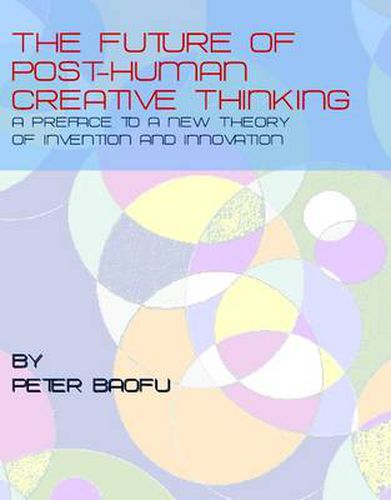Readings Newsletter
Become a Readings Member to make your shopping experience even easier.
Sign in or sign up for free!
You’re not far away from qualifying for FREE standard shipping within Australia
You’ve qualified for FREE standard shipping within Australia
The cart is loading…






What exactly makes creative thinking so magical that, somehow, everyone can be creative and, by implication, creativity is a good thing to have-to the point that this popular view is fast becoming a fashionable nonsense in this day and age of ours? To put things in a historical perspective-this popular view contrasts sharply with the opposing view in the older days (e.g., during the Enlightenment and Romantic eras), when people used to think that creativity was primarily for the selected few with extraordinary abilities. Contrary to the respective conventional wisdom in each of the two opposing eras, neither of the two views is valid. Ours is no more so than theirs. This is not to imply, of course, that there are only a few instances of creativity in human history, or, in reverse, that creativity can be equally taught to everyone-and, for that matter, that there is absolutely nothing good about creativity. Obviously, extreme views like this are far from the truth.The point in this book, however, is to show an alternative (better) way to understand the nature of creative thinking, which goes beyond both convergent and divergent thinking, while learning from them. The current fashionable nonsense on creative thinking has tended to minimize its hidden downsides and exaggerate its overstated promises, as part of a new ideology in this age of ours. In addition, there is nothing intrinsically good (or bad) about creative thinking -just as there is nothing essentially good (or evil) about God,
the King,
Motherland, or the like, by analogy. They have all been used and misused in accordance to the interests and powers that be over the ages.If true, this seminal view will fundamentally change the way that we think about the nature of imagination and intuition, with its enormous implications for the future of invention and innovation, in a small sense, and what I originally called its post-human fate, in a large one.
$9.00 standard shipping within Australia
FREE standard shipping within Australia for orders over $100.00
Express & International shipping calculated at checkout
What exactly makes creative thinking so magical that, somehow, everyone can be creative and, by implication, creativity is a good thing to have-to the point that this popular view is fast becoming a fashionable nonsense in this day and age of ours? To put things in a historical perspective-this popular view contrasts sharply with the opposing view in the older days (e.g., during the Enlightenment and Romantic eras), when people used to think that creativity was primarily for the selected few with extraordinary abilities. Contrary to the respective conventional wisdom in each of the two opposing eras, neither of the two views is valid. Ours is no more so than theirs. This is not to imply, of course, that there are only a few instances of creativity in human history, or, in reverse, that creativity can be equally taught to everyone-and, for that matter, that there is absolutely nothing good about creativity. Obviously, extreme views like this are far from the truth.The point in this book, however, is to show an alternative (better) way to understand the nature of creative thinking, which goes beyond both convergent and divergent thinking, while learning from them. The current fashionable nonsense on creative thinking has tended to minimize its hidden downsides and exaggerate its overstated promises, as part of a new ideology in this age of ours. In addition, there is nothing intrinsically good (or bad) about creative thinking -just as there is nothing essentially good (or evil) about God,
the King,
Motherland, or the like, by analogy. They have all been used and misused in accordance to the interests and powers that be over the ages.If true, this seminal view will fundamentally change the way that we think about the nature of imagination and intuition, with its enormous implications for the future of invention and innovation, in a small sense, and what I originally called its post-human fate, in a large one.